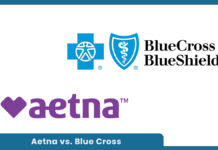Accounts receivable insurance, also known as A/R insurance or trade credit insurance. This is a unique type of coverage designed to safeguard businesses from financial losses that result from unpaid client debts. This insurance coverage comes into play when a client fails to settle their dues. Or when the insured’s debt collection system or billing records are affected by unforeseen events, such as fires, earthquakes, or floods. These mishaps can cause significant disruptions to the debt collection process, leading to financial losses for the business.

This insurance covers outstanding balances owed by clients that become uncollectible due to a covered peril. Also, as the interest on loans required to recover from the loss. It can also cover defaults by clients due to financial mismanagement, fraud, natural disasters, or insolvency. However, it does not cover lack of payment or withholding of payment due to defective products, erroneous advice, or misunderstandings.
How Does it Work?
This insurance protect businesses against two broad types of losses that can occur when they are unable to invoice or receive payment from clients.The first type of loss is property damage to financial records caused by a covered peril. This includes fire, theft, or flood. The second type of loss is when a client defaults on paying for goods. Or services due to a covered peril, such as bankruptcy, contractual issues, or insolvency.
These losses are generally not covered by a standard commercial property policy. However, an accounts receivable endorsement can be added to a commercial property policy, or it can be included in a business owner’s policy (BOP) or commercial package policy (CPP). Alternatively, it can be purchased as a separate, stand-alone policy, which may provide more comprehensive coverage than an endorsement would.
In the event of property damage, accounts receivable insurance can cover all reasonable expenses. From reestablish electronic and paper financial records and any excess temporary expenses incurred to collect payments from clients. It can also cover all outstanding balances due from clients that are uncollectible due to the covered peril. Plus the interest on loans needed to recover from the loss.
When purchasing accounts receivable coverage, it is essential to confirm what is considered a covered loss under your policy with your insurance company or agent to ensure that you have the necessary protection in place.
What does it Not Cover?
Accounts receivable insurance has specific limitations regarding the reasons for a client’s default. Typically, a default is defined as the client’s inability to pay rather than a deliberate refusal to do so. Consequently, this type of insurance does not cover instances where payment is withheld due to issues. This includes defective products, inaccurate advice, or misunderstandings.
Furthermore, accounts receivable insurance excludes defaults resulting from government. Or military actions, nuclear hazards, dishonesty, false pretenses, concealment, or earth movements. Additionally, this insurance does not provide coverage for lost income or operational expenses stemming from property damage. Such costs are typically addressed by business interruption insurance.
For instance, if a fire damages a portion of an office, leading to temporary closure for repairs, business interruption insurance would cover expenses such as rent, payroll, and income loss.
Who Needs It?
The necessity for accounts receivable insurance extends to a wide range of businesses. This is particularly for those heavily dependent on financial and electronic records and client payments. This encompasses small enterprises operating on narrow profit margins, entities opting for or constrained from conducting credit assessments, and sizable corporations offering high-value products or services.
Moreover, global corporations engaging in cross-border transactions may find accounts receivable coverage indispensable. Such companies often encounter challenges in evaluating the creditworthiness of international partners or anticipating potential foreign political uncertainties that could lead to payment defaults.
FAQs
Can I insure my accounts receivable?
Yes, this coverage helps secure a company’s financial records and ensures that outstanding balances due from clients are recoverable, even in cases of non-payment or defaults.
How does accounts receivable insurance differ from traditional business insurance?
Accounts receivable insurance differs from traditional business insurance by focusing specifically on protecting a company’s outstanding invoices and receivables. While traditional business insurance covers property damage, liability, and other general risks, accounts receivable insurance is tailored to safeguard against financial losses due to non-payment by clients or other covered perils affecting the collection of debts.
Is accounts receivable insurance necessary for all businesses, regardless of size?
While accounts receivable insurance can benefit businesses of all sizes, its necessity may vary depending on factors such as the industry, client base, and risk tolerance. Small businesses with limited resources or those operating in volatile markets may find accounts receivable insurance particularly valuable in managing credit risks and ensuring financial stability. Larger corporations with extensive client portfolios and international operations may also benefit from the protection it offers against payment defaults and insolvencies.



